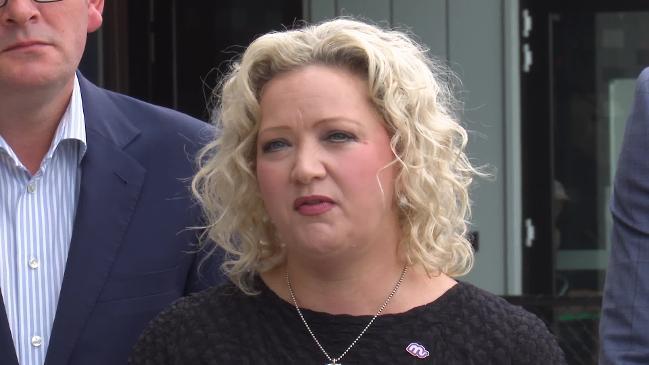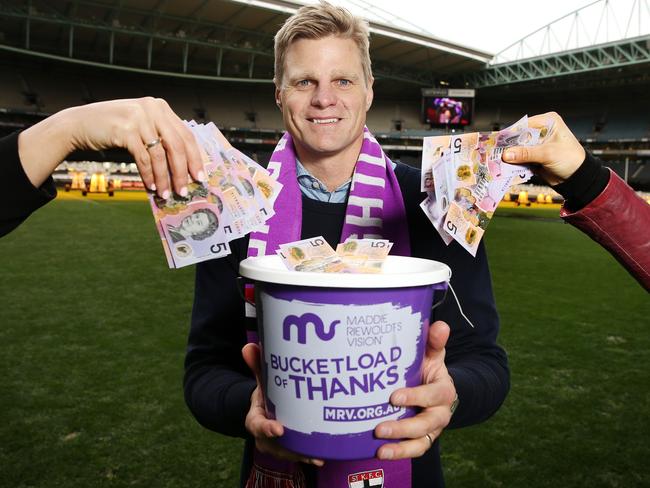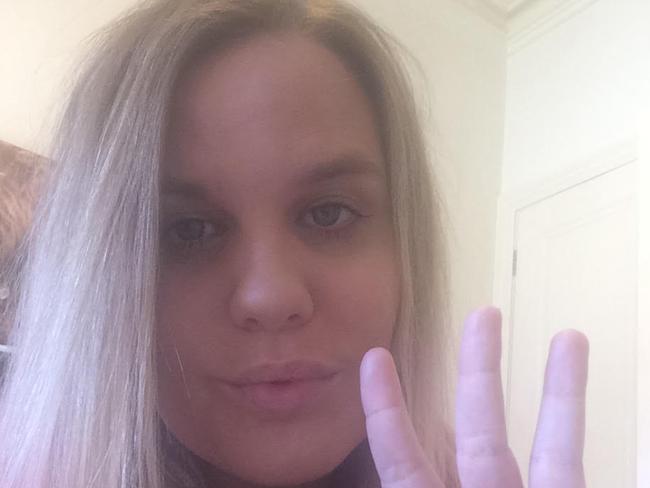Nick Riewoldt charity for late sister Maddie gets a $1m boost
THE federal government will donate $1 million towards AFL legend Nick Riewoldt’s campaign to find a cure for the disease that claimed his sister Maddie.

VIC News
Don't miss out on the headlines from VIC News. Followed categories will be added to My News.
NICK Riewoldt’s heartfelt campaign to find a cure for the disease that claimed the life of his sister has received a massive funding boost.
The federal government has confirmed it will donate $1 million towards Maddie Riewoldt’s Vision in what is expected to help bring researchers a step closer to finding a cure.
It follows the resounding support from football fans who fundraised at the showdown between Richmond and St Kilda at Etihad Stadium.
MADDIE’S MATCH: RICHMOND AND ST KILDA FACE OFF
MADDIE’S MUM PENS EMOTIONAL TRIBUTE
ETIHAD STADIUM’S SPECIAL GESTURE TO RIEWOLDTS

Maddie, the sister of AFL legend Riewoldt, died in 2015 at age 26 after a five-year battle with aplastic anaemia, a rare disorder where a patient’s bone marrow doesn’t produce enough blood cells.
The charity was founded by the Riewoldt family in collaboration with The Snowdome Foundation.
The funding is expected to support at least three new medical researchers over three years to undertake vital research and clinical trials in Australia into better treatments and ultimately a cure for bone marrow failure.
It will also go to clinical trial infrastructure and allow researchers to access novel therapies and potentially save the lives of the patients afflicted with these diseases.
Riewoldt said the windfall meant a lot to those people grappling with the disease and their families.

“One million of secured federal funding means that Maddie’s Vision will realise the next stage of our strategy — access to clinical trials,” he said.
“This funding makes Australian research sites attractive to global clinical trial opportunities. Clinical trials give patients more options and hope of survival. It breaks our hearts that Maddie didn’t have that opportunity.”
Bone marrow failure syndromes are a group of rare disorders where a person’s bone marrow doesn’t produce enough blood cells for normal life. The most common of these is aplastic anaemia.
Patients with bone marrow failure syndromes have a high risk of developing cancer, including leukaemia and certain solid tumours. It is estimated 160 young Australians are diagnosed with bone marrow failure syndromes each year, half of whom will not survive.
Health minister Greg Hunt said Maddie’s Vision offered hope to Australian patients.
“This investment builds on Australian government funding of more than $1.7 million to fund a Monash University trial of a new treatment, avatrombopag, together with bone marrow lab studies and genomics assessments to help better understand and treat aplastic anaemia,” Mr Hunt said.


